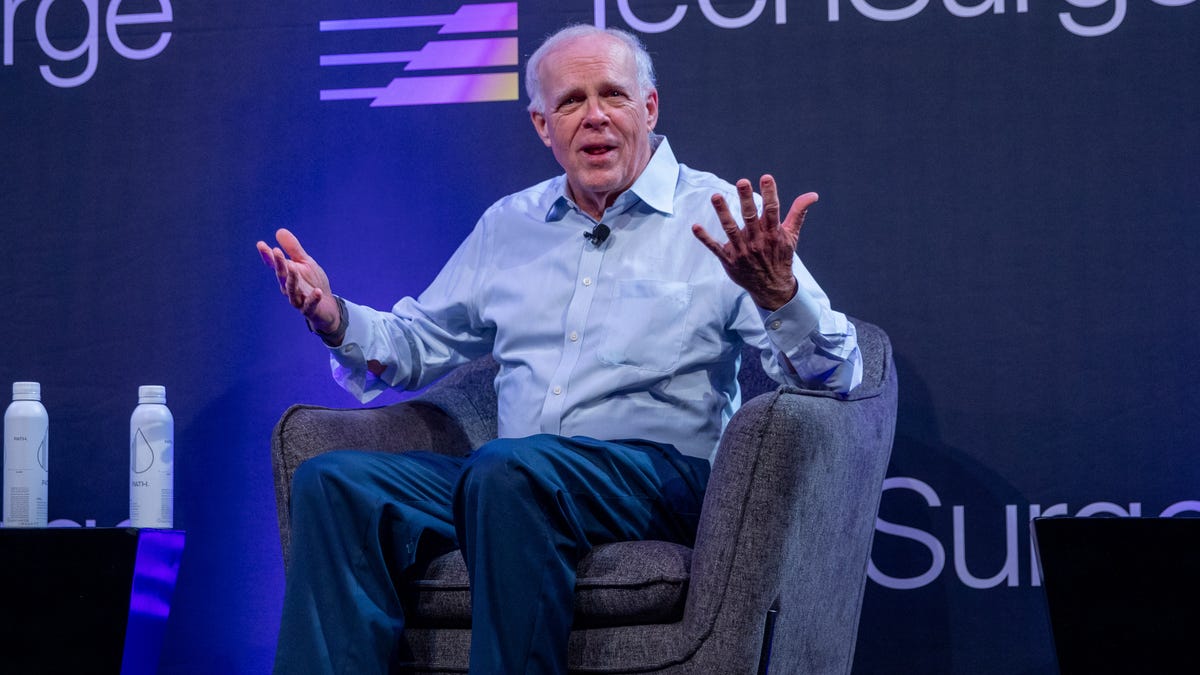ChatGPT and other AI systems are propelling us faster toward the long-term technology dream of artificial general intelligence and the radical transformation called the “singularity,” a Silicon Valley chip luminary and former Stanford University professor John Hennessy believes.
“The AI revolution is upon us. It’s stunning,” Hennessy said Monday at the TechSurge conference. “It’s awakened in everybody a sense that maybe the singularity, …this turning point where computers really are more capable than humans, is closer than we thought.”
Hennessy won computing’s highest prize, the Turing Award with colleague Dave Patterson for developing the computing architecture that made energy-efficient smartphone chips possible and that now is the foundation for virtually all major processors. He’s also chairman of Google parent company Alphabet.
AI is indeed transforming computing, relying on neural network processing methods inspired by the human brain to tackle new problems in spotting patterns and more recently to generate new text and imagery. AI spread across the computing industry for years making speech recognition mainstream and letting us unlock our phones with our faces. But AI expectations surged with 2022’s debut of OpenAI’s ChatGPT, which can answer a huge range of questions, offer advice, pass medical exams, hold conversations and write programs and poetry.
Microsoft is using the GPT technology to power a new version of its Bing search engine and plans to use it more broadly in other tools like Word, PowerPoint and Excel. Google, an AI pioneer, debuted a competing AI tool called Bard in February.
What’s unclear is how well today’s AI, trained for relatively narrow tasks, will grow to match the versatility of human brains. Hennessy is optimistic
“Some of us thought that point at which we’d have a general artificial general intelligence was 40 or 50 years away. I think everybody’s horizon has moved in by probably 10 or 20 years,” Hennessy said. “These models keep getting bigger, and every time we make a jump up in the size of the model, we seem to be able to do new tasks. We don’t know where that’s going to plateau yet.”
Another problem with general intelligence, in particular with tools like ChatGPT that synthesize new material from vast swaths of training data, is misleading us. Today, it’s hard for AIs and people use them to distinguish between reality and “hallucinations,” digital flights of fancy that often sound plausible.
Hennessy sees AI today as an “amplifier,” a similar concept to Microsoft’s position of AI as a “co-pilot.”
“I may not get a video that’s perfect or a PowerPoint presentation or a paragraph that’s perfect. But maybe I get something I can really work with, then use some human intelligence to make it even better,” Hennessy said.
Google is concerned about the problems as well, which is why it didn’t race to release Bard until after ChatGPT stole so much attention.
“Google was hesitant to productize this because it didn’t think it was really ready for a product yet. But I think as a demonstration vehicle, it’s a great piece of technology,” Hennessy said. “You don’t want to put a system out that either says wrong things or sometimes says toxic things. Right. There’s a level of caution about this.”
